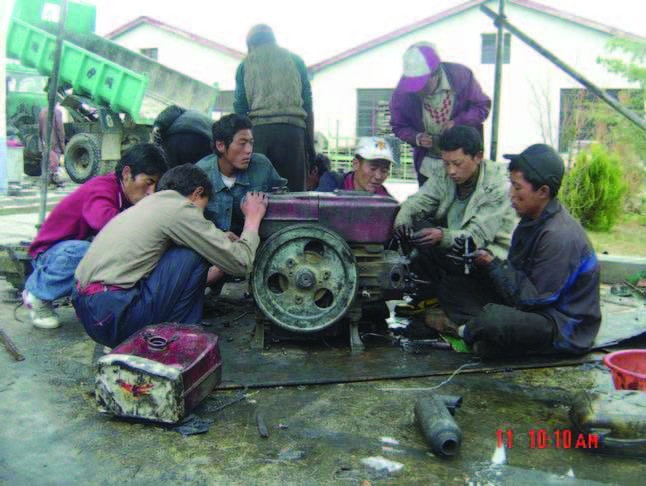
After he completed school, Dorjee, who uses one name and is a resident of Namling, had few job prospects. His family had little use for another farm hand and he was ineligible for the few coveted jobs in county government.
Dorjee’s predicament was typical of many young Tibetans who have limited skills and, therefore, few opportunities for employment. Traditional sources of income are no longer enough to cover basic needs. As a result, youth in this rural, poor county in the Tibetan Autonomous Region are increasingly lured into petty crime and prostitution to make ends meet.
In 2007, Dorjee learned of a new USAID-funded skills training program for unemployed youth and immediately signed up. Implemented by the Tibet Poverty Alleviation Fund, the seven-month, on-the-job program trained young men to repair tractors, motorcycles and agricultural machinery. It also provided basic business training and access to credit and supply networks for spare parts.
At the end of the program, Dorjee returned home to open his own repair shop. With additional assistance from USAID, he drew up a basic business plan, submitted a loan application, and received a two-year micro-loan. He opened his shop in February 2008, and within weeks a steady stream of customers was seeking repair services and spare parts.
By June 2009, Dorjee had generated enough income to pay off half of his loan and employ two other program trainees. Dorjee’s repair shop is one of more than 30 small enterprises in Tibet established by graduates of USAID-funded training programs in 2008. Start-up businesses range from furniture workshops to rural construction teams to a brick factory. Reflecting on his success, Dorjee is optimistic about the future. “Now I can earn enough to support myself and send money to my parents. When I have children, I will be able to give them better chances than farming in our village.”







Comment
Make a general inquiry or suggest an improvement.